Thanks to Neil Ackermann for sharing these photos of his class at Chapel Downs Primary School taking part in CensusAtSchool.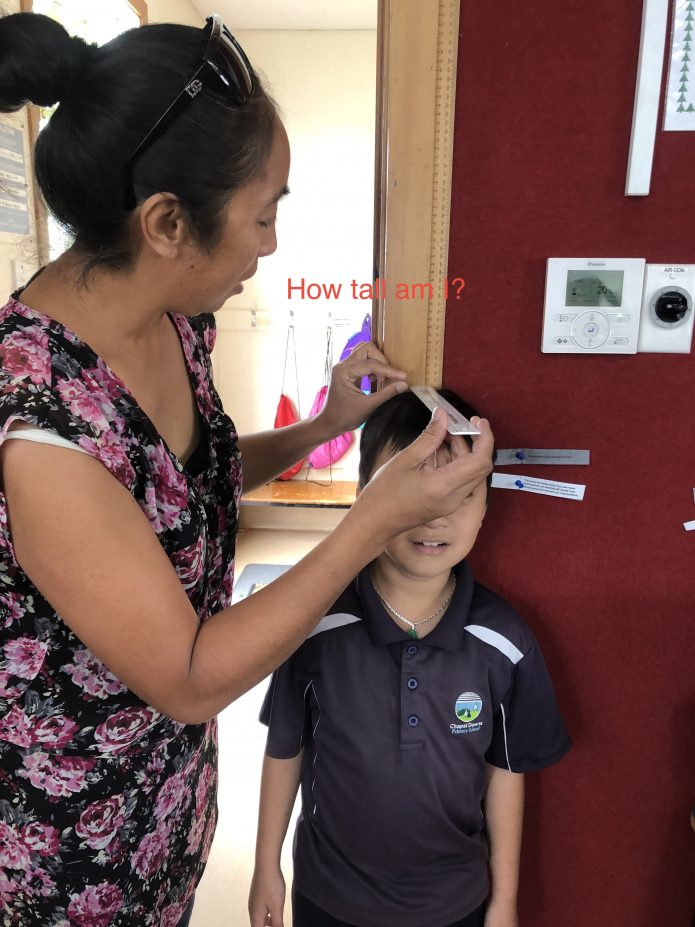
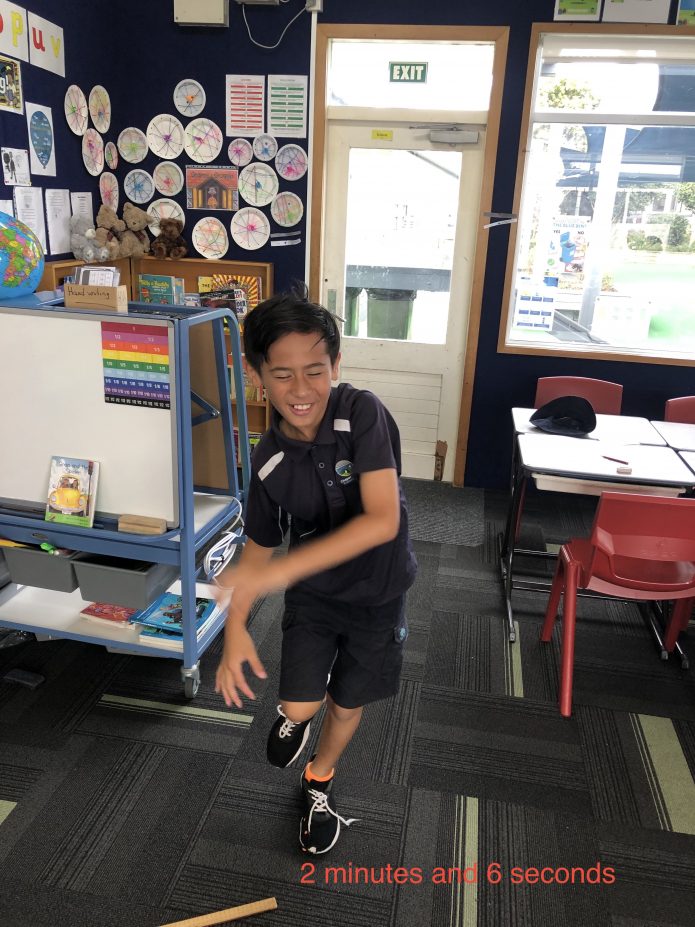
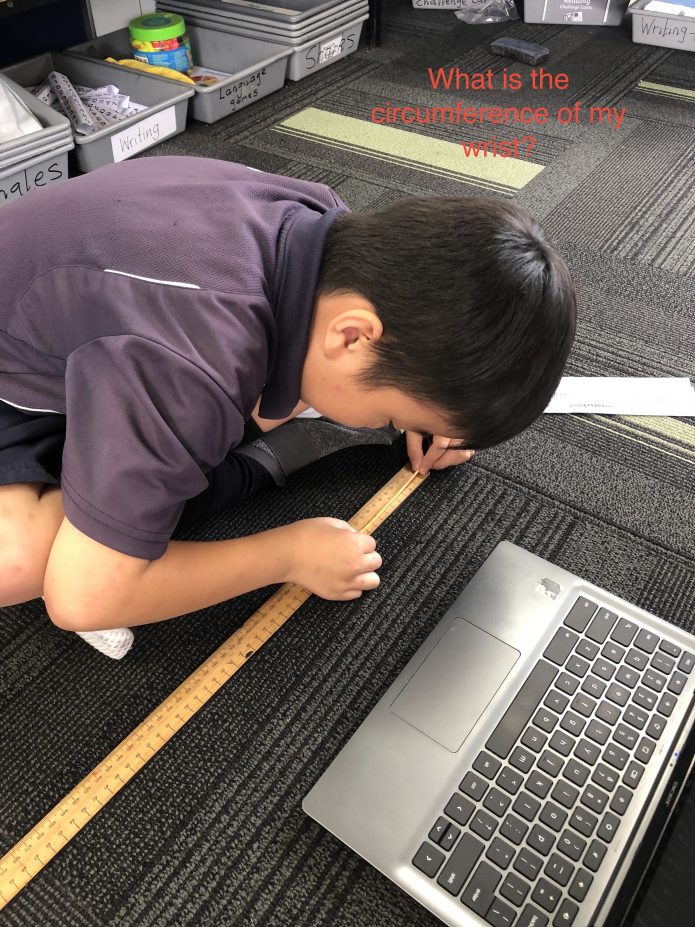
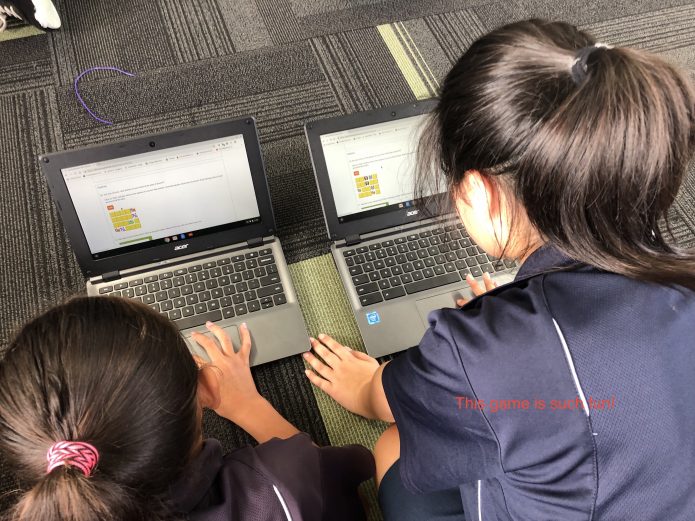
Thanks to Paige Bayliss for sharing these photos of her Year 10 class at Kaipara College taking part in CensusAtSchool.
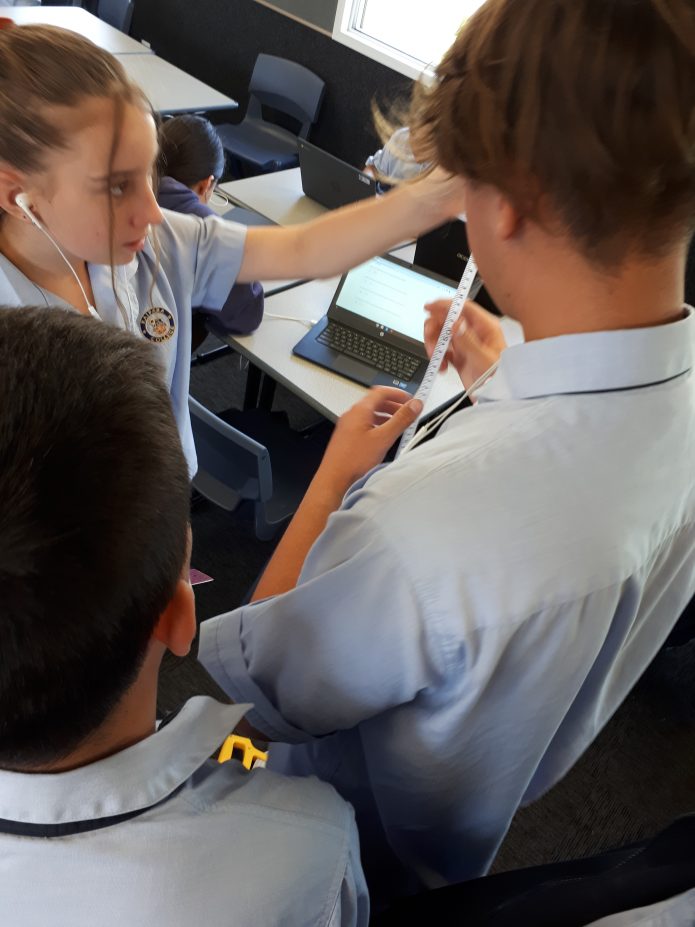
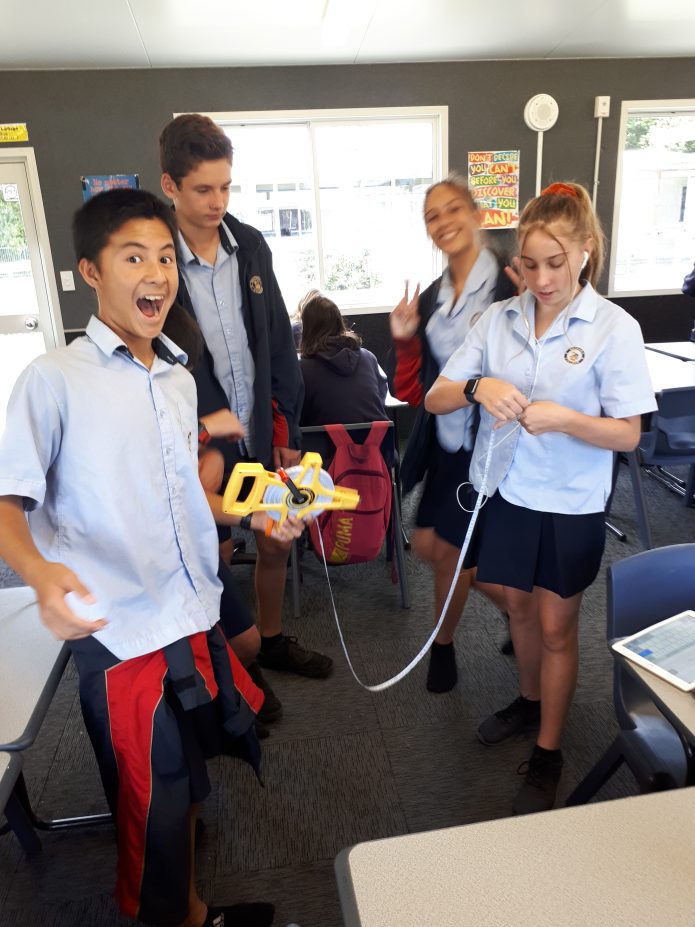
Nearly half of Kiwi students taking part in a nationwide in-school census believe that climate change “is an urgent problem that needs to be managed now”.
Students aged from 9 to 18 (Year 5 to Year 13) taking part in the statistics education project CensusAtSchool, or TataurangaKiTeKura in te reo Māori, were asked to choose an option that best described their opinion on climate change. A total of 44% of the students selected the statement that climate change was “an urgent problem that needs to be managed now”.
A total of 17% of all participants chose the statement that climate change was “a problem that needs to be managed in the future”. Just 10% believed that climate change was “not a problem”, and 29% either didn’t know or didn’t have an opinion.
High-school students felt the most acute sense of urgency, with 55% of year 9-13 students agreeing that climate change was “an urgent problem that needs to be managed now”.
The findings, from the first 4,900 students to take part in CensusAtSchool, come as young people prepare for a student ‘strike’ to push for increased government action on climate change. Thousands of New Zealand students will leave school on Friday March 15 to join a day of protest called Student Strike for Climate Action, calling on politicians to act quickly to limit global warming. In New Zealand, more than 25 rallies are due to take place in the four main centres and smaller towns.
CensusAtSchool co-director Rachel Cunliffe says that every edition of the schools’ census asks topical questions affecting young people. The climate change question in this census was added at the request of teachers last year – well before the current protest action was organised.
“Teachers told us that climate change was an issue for students and they asked for a question so students could see real, relevant data on the issue,” Rachel Cunliffe said. “At present, the only way to get hard data about the opinions and beliefs of New Zealand’s young people is through CensusAtSchool, so we added the question about climate change so young people themselves and the public can see exactly how their generation feels.”
The CensusAtSchool results reflect a nationwide poll of adults aged 18 and over carried out last March by Horizon Research. It found that 64% of adults nationwide believed climate change was a problem, 29% of them saying it was urgent.
CensusAtSchool, which launched on Monday March 4, is a biennial statistics project that shows students how data-science skills reveal the unseen and can be used to make informed decisions about their own lives.
Supervised by teachers, students from Year 5 to Year 13 fill in a digital questionnaire about their activities and opinions, with data returned to teachers for classroom analysis. The figures on climate change come from the first 3,400 students to take part; up to 30,000 students are expected to have their say before the census closes on July 5 this year.
CensusAtSchool started in New Zealand in 2003, and is run by the University of Auckland’s Department of Statistics with support from Stats NZ and the Ministry of Education. It is part of an international effort to boost statistical capability among young people and is carried out in Australia, the United Kingdom, Canada, the United States, Japan, and South Africa. The countries share some questions so comparisons can be made.
Thanks to Lyn McLennan for sending in some photos of her students taking part in this year’s CensusAtSchool.
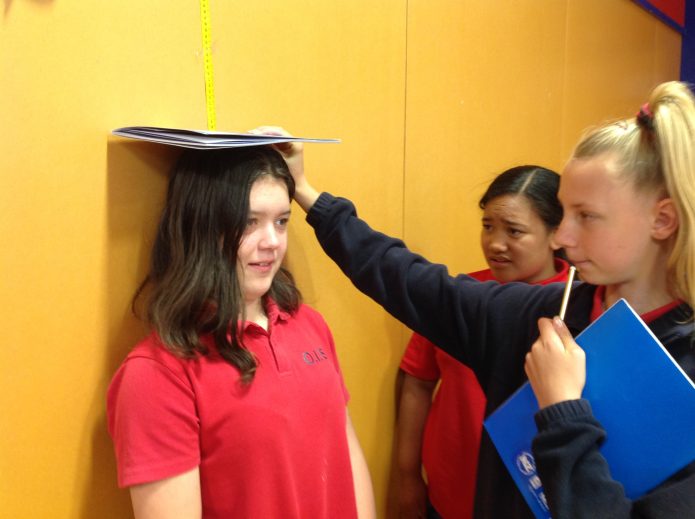
Year 8 Room 13 student from Oamaru Intermediate School, Navanah Kennedy-vanDelden, measures the height of Chelsy Monahan while Saane Silakivai looks on to see if her prediction was correct.
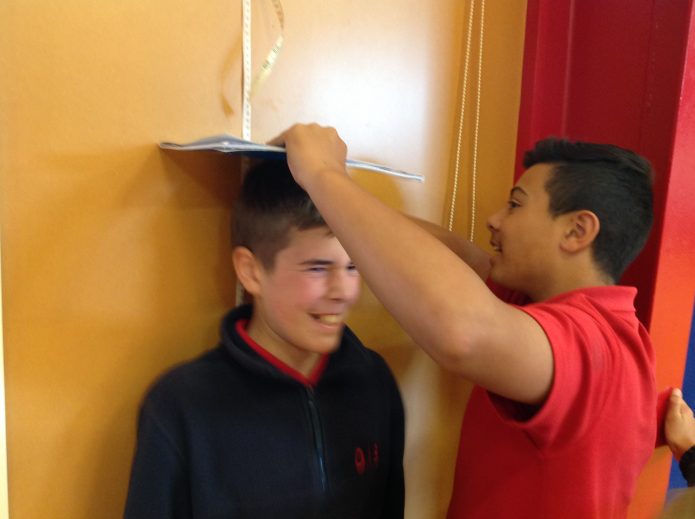
Tyson Mareta-Ria measures Year 8 Chris Duff at Oamaru Intermediate School.
A large national survey that will give an intriguing glimpse into schoolchildren’s lives launches today.
Thousands of primary, intermediate and secondary school students around the country will share their views on issues as wide-ranging as climate change, the amount of time they spend on digital devices, and how they handle interpersonal issues. Senior students will be asked to also share their own attitudes and perceived parental attitudes to activities such as drinking and smoking by young people.
The students are taking part in CensusAtSchool New Zealand, known in te reo Māori as TataurangaKiTeKura Aotearoa, a non-profit, online educational project that aims to bring statistics to life in both English and Māori-medium classrooms. It is run by the Department of Statistics at the University of Auckland in partnership with the Ministry of Education and Stats NZ.
Supervised by teachers, students from years 5-13 anonymously answer questions in English or te reo Māori on digital devices. Some questions involve practical activities such as measuring the length of their right feet and weighing their laden schoolbags. Others will seek their views and experiences on a range of social and personal issues.
Up to 30,000 schoolchildren are expected to participate in CensusAtSchool this year. By late last night, more than 1,509 teachers from 775 schools had already registered. The census runs until July 5.
This is the ninth edition of CensusAtSchool, and co-directors Professor Chris Wild and Rachel Cunliffe say that it’s shaping up to be the biggest ever. Professor Wild, an expert in statistics education, says that the project is appealing because it produces data that is relevant and real to students, their friends and families.
“The students experience the whole statistical cycle – they fill in the survey, and then they use statistical methods to explore the data and tell the stories in it,” he says. “It helps students see the benefits of statistics in society – and they love finding out what other kids their own age are thinking and doing.”
Rachel Cunliffe, a former University of Auckland statistics lecturer who now runs a digital design company, says teachers are always looking for cross-curricular activities. CensusAtSchool is a rich resource with its reach across statistics and maths, health, social studies, geography, media studies, technology and science.
CensusAtSchool is part of an international effort to boost statistical capability among young people and is carried out in Australia, Canada, the United States, Japan and South Africa. The countries share some questions so comparisons can be made.
The only national survey to comprehensively chart children’s views of their own lives is taking place across New Zealand from March 4. This year, we will learn from Kiwi kids on issues as wide-ranging as climate change, the amount of time they spend on digital devices, how they handle interpersonal issues, and their own attitudes and perceived parental attitudes to activities such as drinking and smoking by young people. Preview the questions in English and te reo Māori here.
CensusAtSchool New Zealand, known in te reo Māori as TataurangaKiTeKura Aotearoa, is a non-profit, online educational project that aims to bring statistics to life in both English and Māori-medium classrooms. Supervised by teachers, students from years 5-13 anonymously answer 30 questions in English or te reo Māori, and later explore the results in class. CensusAtSchool runs every two years, and in 2017, more than 32,000 students took part, representing 534 schools and 1,062 teachers.
CensusAtSchool, now in its ninth edition, is a collaborative project involving teachers, the University of Auckland’s Department of Statistics, Statistics New Zealand and the Ministry of Education. It is part of an international effort to boost statistical capability among young people, and is carried out in Australia, the United Kingdom, Canada, the US, Japan and South Africa. The countries share some questions so comparisons can be made.
Rise of the machine learners:
Statistical learning in the computational era
Don’t miss this set of four lectures held from March to April. Get a group together, invite your colleagues from other departments, or take your stats scholarship students. See the program: IhakaDLE19.
